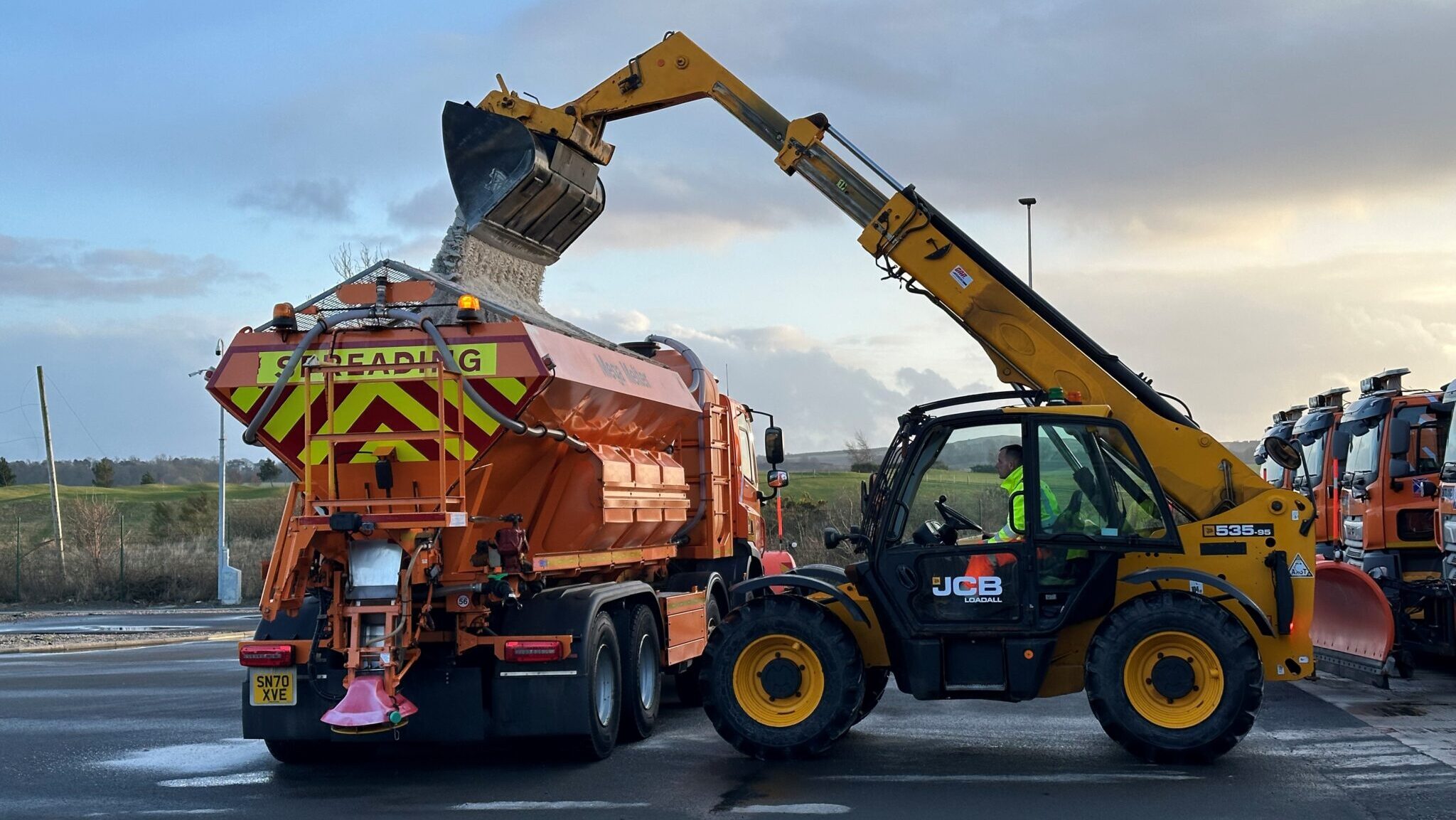
Every winter brings different challenges and we’re always ready to deal with whatever comes our way, whether that’s snow and ice, storm damage, high winds or flooding. This winter were lucky that South East Scotland escaped the worst of the seasonal weather and we did not face as big an impact as other regions.
The most significant incidents were Storm Isha on Sunday 21 January and Storm Jocylyn on Tuesday 23 January, which both brought very strong winds and rain resulting in restrictions on major bridges, trees being blown down and some flooding. Gully tankers, a vactor unit and squads with chainsaws were utilised to deal with any issues that occurred. The biggest event in the South East Unit was at Jedburgh on the A68 where the river burst its banks onto the A68 during Storm Jocylyn. Whilst the water receded fairly quickly, the floodwater left mud and gravel on the carriageway which had to be cleared before the road could be re-opened.
As well as responding to storms, our main focus during winter is to carry out precautionary treatments to prevent ice forming. Every day BEAR Scotland receives detailed weather forecasts, which predict which roads are expected to experience below freezing conditions and at what time. To help stop ice forming, our gritters then treat the roads before the temperature drops. This is usually late afternoon (before peak traffic) and sometimes again overnight to make sure the roads have been treated before the morning peak. Our gritters are equipped for pre-wetted salting, which uses uses brine mixed with dry salt immediately prior to spreading to help it stick to the road surface and start the melting process.
This winter period has been similar to the last two winters, with salt usage over the season to date being slightly lower.
Since 22 January we have been implementing a couple of trials in relation to sustainability, reducing all our spread rates on the carriageway by 10% and reducing the temperature we treat footways from +1C to +0.3C. Temperatures have been mostly mild with relatively few treatments required since these trials began, however we are confident that these are small steps we can take to reduce our carbon footprint without impacting the level of service, so we plan to continue them into the next winter season.
Plan your journey – there’s lots of information available on weather, road and traffic conditions, so make sure you’re properly informed and equipped and be prepared to allow extra time or delay your journey if necessary.